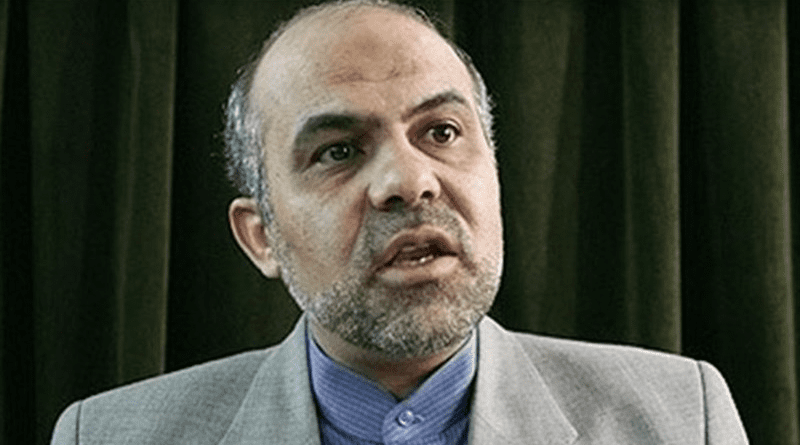Is It Time For UK To Shift Its Engagement With Iran? – OpEd
By Arab News
By Mohamed Chebaro*
Manufactured charges of spying for the West are commonplace in Iran and are usually allocated based on the level of pressure the government is feeling domestically or internationally. Saturday’s execution of dual Iranian-British citizen and former Deputy Defense Minister Alireza Akbari, who was arrested three years ago and tortured for allegedly spying for the UK’s MI6, is a manifestation of how far Tehran will go in its pursuit to show that the ongoing domestic protests are authored by Iranians working for the UK, Israel or the US. Akbari, like many others, was executed after being convicted of the “classic” Iranian crime of committing “corruption on Earth and harming the country’s internal and external security.”
Despite the UK and EU nations condemning the execution, claiming that it was another “callous and cowardly act,” with UK Foreign Secretary James Cleverly going as far as promising that Akbari’s execution would not go unchallenged, and the slamming of sanctions on Iran’s prosecutor general, it seems that these countries are not yet prepared to proscribe the country’s Islamic Revolutionary Guard Corps as a terrorist organization.
No doubt Britain is feeling the limitations of its power and frustration at Iran’s impunity in a complex international landscape that is unlikely to change soon. On the other side, as the Iranian regime counts down to Feb. 11, when it will celebrate the so-called Islamic revolution’s 44th anniversary, it might not be difficult for the mullahs to feel victorious, emboldened and still able to hold “big powers” to ransom.
It is not an exaggeration to say that the Iranian regime has been succeeding where others have been failing. For years, the mullahs have succeeded in suppressing and taming the desires of the Iranians, who were once a vibrant, ambitious and outward-looking society. It has succeeded in making the proud Iranian state sink to being on par with nations like North Korea, Venezuela and Syria in terms of the amount of sanctions applied against it.
The revolution has managed to survive and succeed in standing up to the US, UK and Israel, at least in the eyes of many Iranians and others from the wider Islamic world. The revolution could also boast of its success in building and mobilizing an international brigade that is fighting Tehran’s battles in Syria, where militias from Lebanon, Iraq, Afghanistan and elsewhere have helped prop up the Assad regime since the popular uprising in 2011. And the revolution could claim that its persistence has yielded complete control over four Arab countries — Yemen, Lebanon, Syria and Iraq — not to mention its influence on Islamic movements springing up in Gaza, Somalia and Libya.
On the technological level, the country’s advancement has been noticeable, as Russia has been purchasing its kamikaze drones to unleash on Ukraine’s civilian infrastructure. Last but not least, it has an undoubted ability to effectively hold dual nationals hostage to blackmail nations. For example, the UK recently paid back £400 million ($493 million), which was owed to Iran from an expired British tanks deal signed during the reign of the late shah, in return for the release of dual Iranian-British citizen Nazanin Zaghari-Ratcliffe, who had been imprisoned for unfounded reasons.
Therefore, I find it unlikely that Iran’s behavior will change anytime soon. And it will not feel concerned if the UK foreign secretary labels its actions “barbaric” or if London takes it a step further and proscribes all of its political, military and judicial leadership as terror-supporting entities, or even labels Iran as a rogue state.
The analyses offered to explain Iran’s actions — whether they are seen as a way to limit the internal public discontent, a means of lashing out to remind all of the regime’s unyielding nature or a way to keep the nuclear deal in play — are secondary to the fact that Iran has been presenting itself as an ever-present and continuing danger to add to the West’s many geopolitical challenges, from Russia and Ukraine to China and beyond.
I recall conversations I had some 20 years ago with a British diplomat and expert in Iranian and Middle Eastern affairs as to what was the most important objective of the revolutionary regime of Iran: The survival of the regime, avenging the Iran-Iraq War, becoming the policeman of the Middle East or becoming a nuclear power? At the time, the Taliban and Al-Qaeda had recently been ousted from Afghanistan with the tacit help of Iran, Saddam Hussein had fallen in Baghdad and Tehran was bidding to establish itself as a nuclear-armed nation. The diplomat, of course, never agreed with my thesis and line of questioning, and was always keen to present the Iranian side as responsible and pragmatic, whom the West was able to do business with despite its shortcomings. In line with this thinking, the UK’s critical engagement policy toward Iran was adopted after 2004, ultimately allowing the British Embassy in Tehran to reopen its doors in 2015, as for London it was imperative to keep a line of communication open with the mullahs at a time of trouble in the Middle East.
Today, that narrative looks destined to shift, but the arsenal at Britain’s disposal is now more limited. Iran is supplying weapons to Russia, threatening media organizations based in London with violence for their reporting on the ongoing protests, and it does not seem in a hurry to have sanctions lifted or to resume the stalled nuclear deal negotiations. Will the thinking in London shift after the execution of Akbari, as its position toward Russia changed after its invasion of Ukraine?
- Mohamed Chebaro is a British-Lebanese journalist, media consultant and trainer with more than 25 years of experience covering war, terrorism, defense, current affairs and diplomacy.

